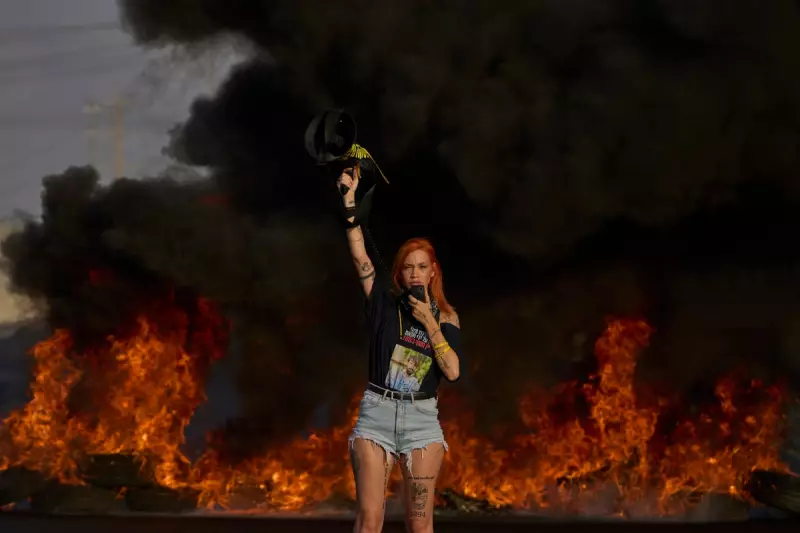
Tens of thousands of impassioned Israeli demonstrators descended upon Jerusalem on Sunday, transforming the streets surrounding the Knesset into a sea of flags and protest signs. The massive rally represents the most significant show of public fury against Prime Minister Benjamin Netanyahu since the October 7th attacks, placing his government under unprecedented strain.
Protesters issued twin demands: immediately secure a ceasefire deal with Hamas to bring home the remaining hostages held in Gaza, and call for snap elections to oust what they call a failing leadership. The chants of "elections now!" and "deal now!" echoed throughout the city, underscoring the nation's deep frustration and grief.
A Government on the Brink
The public outcry in Jerusalem comes at a critical juncture for Netanyahu's coalition. Key members of his wartime cabinet, notably centrist rival Benny Gantz, have threatened to resign if a new post-war plan for Gaza is not adopted. This internal dissent, combined with the external pressure from the streets, threatens to collapse his government.
Netanyahu is caught between competing pressures. He faces staunch opposition from his far-right coalition partners, Itamar Ben-Gvir and Bezalel Smotrich, who have vowed to bring down the government if he agrees to what they deem a "reckless" deal with Hamas. This political tightrope walk has led to a perceived stagnation in negotiations, infuriating families of the hostages and their supporters.
The Human Cost: Families Lead the Charge
At the heart of the protests are the families of the estimated 100 hostages still believed to be alive in Gaza. Their anguish has become a powerful political force, mobilising widespread public sympathy and action. One poignant display saw protesters laying a massive Star of David on the road made from red fabric, symbolising the bloodshed and loss.
Many Israelis hold Netanyahu personally responsible for the security failures that led to the October 7th massacre and believe his political survival is now prioritised over national unity and the safe return of their loved ones.
What Happens Next?
The convergence of mass public protest, internal coalition fractures, and stalled international negotiations has created a perfect political storm. All eyes are now on the Prime Minister's next move. Will he bend to the will of the protesters and the hostage families to secure a deal, or will he capitulate to his hardline allies to keep his government intact? The stability of his leadership and the fate of the hostages hang in the balance.





